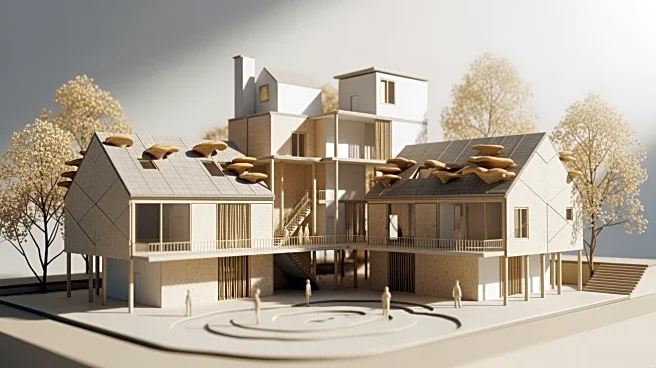What's Happening?
MycoTile, a Nairobi-based company, is producing sustainable building panels from mushroom mycelium and agricultural waste. These panels offer an eco-friendly and cost-effective alternative to traditional construction materials, being used for roof and wall
insulation. The panels cost roughly two-thirds of standard materials while maintaining comparable quality. MycoTile produces nearly 3,600 square yards of panels monthly, with one street vendor paying $208 for panels for her 161-square-foot home. The company repurposes around 250 tons of agricultural waste annually, reducing environmental impact. Kenyan authorities support local innovation in decarbonizing construction, granting MycoTile access to machinery at the Kenya Industrial Research and Development Institute.
Why It's Important?
MycoTile's innovation addresses Nairobi's housing shortage, offering a sustainable solution that reduces construction costs and carbon footprint. The use of biodegradable materials aligns with global efforts to promote eco-friendly construction practices. The company's approach not only provides affordable housing options but also contributes to environmental conservation by repurposing agricultural waste. This initiative reflects a growing trend towards sustainable development in urban areas, potentially influencing construction practices worldwide.
What's Next?
As MycoTile continues to scale production, it may expand its market reach, potentially influencing construction practices beyond Kenya. The company's success could inspire similar innovations in other regions facing housing shortages and environmental challenges. Continued support from Kenyan authorities may lead to further advancements in sustainable construction technologies.
Beyond the Headlines
The use of fungi-based materials in construction could revolutionize the industry, offering new possibilities for sustainable building practices. This innovation highlights the potential for alternative materials to address global housing and environmental challenges, encouraging further research and development in the field.















